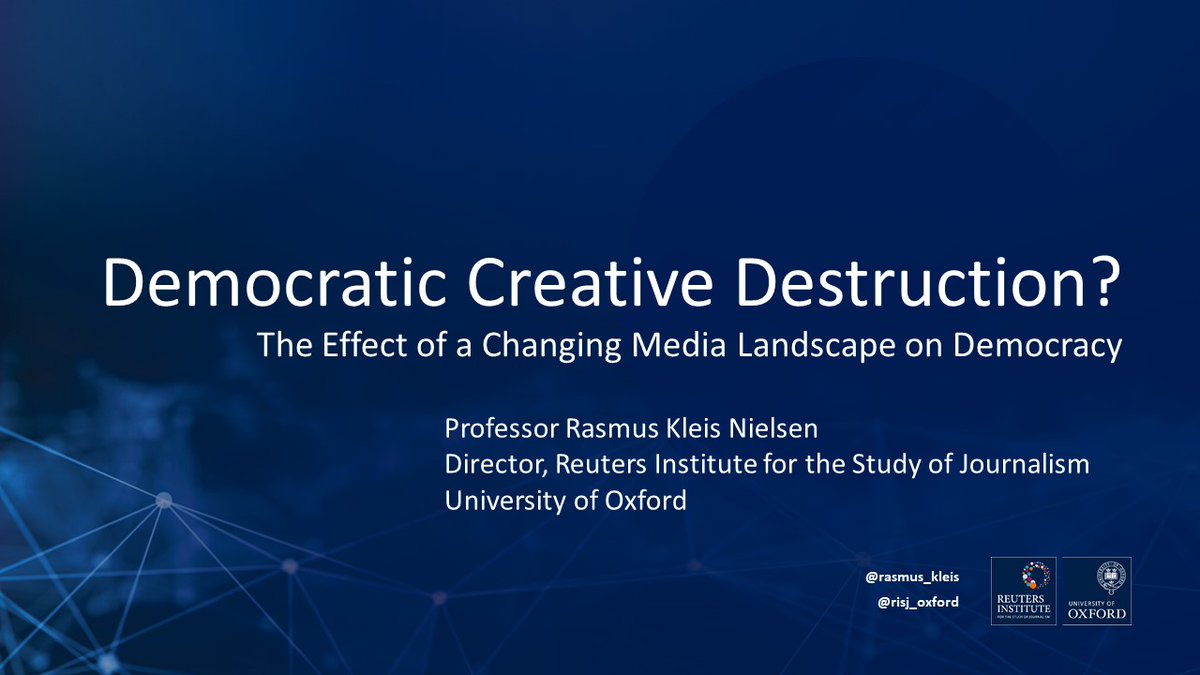
Valuing journalism in a world of near-infinite content - notes from my #ONA20 session
Pandemic powerfully demonstrates journalism’s value
But much of public does not see it that way
We have to confront realities of public perception to make progress reutersinstitute.politics.ox.ac.uk/risj-review/va… 1/8
Pandemic powerfully demonstrates journalism’s value
But much of public does not see it that way
We have to confront realities of public perception to make progress reutersinstitute.politics.ox.ac.uk/risj-review/va… 1/8

News media have published important independent investigations into governments’ handling of the crisis and much more.
And more broadly, our research documents that those who follow the news simply know more about the pandemic. reutersinstitute.politics.ox.ac.uk/infodemic-how-… 2/8
And more broadly, our research documents that those who follow the news simply know more about the pandemic. reutersinstitute.politics.ox.ac.uk/infodemic-how-… 2/8
However, in e.g. UK, our work suggests initial surge in news use quickly faded, news avoidance grew throughout the crisis, and more than a third think news coverage has made the coronavirus crisis worse. Only 7% think journalism has made things better reutersinstitute.politics.ox.ac.uk/most-uk-say-ne… 3/8
And more broadly, while news use is up, still small share of internet use overall, and heavily concentrated among few national publishers.
In US, comScore data suggests, news was ~4.5% of internet use in Feb, up to ~5.5% in March as crisis kicked off, back to ~4.6% in Aug
4/8
In US, comScore data suggests, news was ~4.5% of internet use in Feb, up to ~5.5% in March as crisis kicked off, back to ~4.6% in Aug
4/8
Though that's sobering, encouraging news is that now - unlike a few years back - we have multiple clear proofs that there are sustainable business models for digital news. Distinct, high value-add, digital-first news demonstably works, even if clearly winner-takes-most market 5/8
That means elite - affluent high-interest privileged people like me - will be well served. Two severe challenges remain: local news and reaching wider public.
Local was long run essentially as smaller versions of national. I don't think that will work in digital environment 6/8
Local was long run essentially as smaller versions of national. I don't think that will work in digital environment 6/8
In most cases, the critical mass of attention (and thus ads) and/or subscriptions just do not seem to be there for local = smaller version of national newspapers.
And in terms of national, while elite is well served, most people aren't paying, and many say they never will.
7/8
And in terms of national, while elite is well served, most people aren't paying, and many say they never will.
7/8
So hope we'll congratulate successful national elite titles, learn from them, then move on to think about how local news, and news for wider public of less affluent people who often distrust+don't rate media, and aren't willing to pay, can demonstrate value and be sustainable 8/8
• • •
Missing some Tweet in this thread? You can try to
force a refresh





